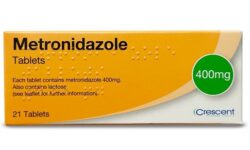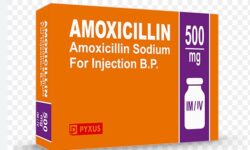Benefits of Drinking Alcohol
In today’s fast-paced world, maintaining good health has become a top priority for many individuals. While regular exercise and a balanced diet are known to be essential for overall well-being, recent studies have highlighted another key aspect of leading a healthy lifestyle – the power of social bonding. In this blog post, we will explore the various benefits that arise from enhanced social interactions, such as improved cardiovascular health, reduced risk of cognitive decline, and potential protective effects against certain diseases. Let’s dive in and discover how fostering connections with others can have a profound impact on our overall health and well-being.
Improved Cardiovascular Health
Alcohol consumption has been a topic of debate for many years, with conflicting opinions on its impact on the human body. However, studies have shown that moderate and responsible drinking can have several benefits, particularly when it comes to cardiovascular health. Research suggests that moderate alcohol consumption, such as one drink per day for women and up to two drinks per day for men, may play a role in reducing the risk of cardiovascular diseases.
One of the main ways in which alcohol can contribute to improved cardiovascular health is through its impact on the levels of high-density lipoprotein (HDL) cholesterol in the body. HDL cholesterol, often referred to as “good” cholesterol, helps to remove low-density lipoprotein (LDL) cholesterol, also known as “bad” cholesterol, from the arteries. This process helps to prevent the build-up of plaque in the arteries, reducing the risk of heart disease and stroke.
In addition to increasing HDL cholesterol levels, moderate alcohol consumption has also been linked to improvements in blood clotting. Research suggests that small amounts of alcohol can help to prevent the formation of blood clots, which can cause blockages in the arteries and lead to heart attacks and strokes. By reducing blood clotting, alcohol can help to keep the arteries clear and promote better blood flow to the heart and brain.
Enhanced Social Interactions
When it comes to social interactions, alcohol has long been a common denominator in various social settings. It is often regarded as a social lubricant, facilitating conversations and helping people feel more relaxed in social situations. Drinking alcohol in moderation can potentially enhance social interactions by reducing inhibitions and promoting a sense of camaraderie among individuals.
One of the key benefits of alcohol in social settings is its ability to alleviate social anxieties. It can help individuals feel more confident, leading to increased sociability and the willingness to engage in conversations. Furthermore, alcohol consumption in moderation can also promote bonding and strengthen social connections among peers.
However, it is important to note that excessive alcohol consumption can have the opposite effect. When consumed in large amounts, alcohol can impair judgment, coordination, and communication skills, which may lead to misunderstandings or conflicts. Therefore, it is crucial to exercise moderation and responsible drinking to fully experience the potential benefits of alcohol in social interactions.
- Improved self-confidence: Alcohol can boost self-confidence in social situations, making individuals feel more comfortable and at ease.
- Increased sociability: Moderate alcohol consumption can enhance sociability and encourage individuals to engage in conversations and interactions.
- Bonding and camaraderie: Sharing a drink can foster a sense of camaraderie among individuals and strengthen social bonds.
| Potential Risks | Recommended Guidelines |
|---|---|
| Excessive alcohol consumption can impair judgment and communication skills | Stick to moderate drinking guidelines: up to 1 drink per day for women and up to 2 drinks per day for men. |
| Alcohol-related conflicts or misunderstandings may arise | Drink responsibly and be mindful of the effects of alcohol on your behavior and interactions. |
Reduced Risk Of Cognitive Decline
Cognitive decline refers to the deterioration of cognitive functions, including memory, attention, and thinking skills. It is commonly associated with aging and can sometimes lead to more severe conditions such as dementia or Alzheimer’s disease. However, recent research suggests that moderate alcohol consumption may be linked to a reduced risk of cognitive decline.
Several studies have explored the potential benefits of drinking alcohol on cognitive function. One study conducted by the University of California, San Diego, found that moderate alcohol consumption was associated with a lower risk of dementia in older adults. The participants who consumed a moderate amount of alcohol, such as one or two drinks per day, showed a significantly lower risk of developing dementia compared to non-drinkers or heavy drinkers.
Another study published in the Journal of Alzheimer’s Disease discovered that moderate alcohol intake was associated with better cognitive performance in both men and women. The researchers analyzed data from over 3,000 participants and found that those who consumed alcohol moderately had higher scores on cognitive tests compared to non-drinkers or heavy drinkers.
| Benefits of Drinking Alcohol | |
|---|---|
| Potential Reduced Risk of Cognitive Decline | |
| Improved Cardiovascular Health | |
| Enhanced Social Interactions | |
| Potential Protective Effects Against Certain Diseases |
In conclusion, while moderate alcohol consumption may have potential benefits in reducing the risk of cognitive decline, it is essential to approach alcohol consumption with caution. The positive effects observed in studies are typically associated with moderate drinking, defined as one drink per day for women and one to two drinks per day for men. Excessive alcohol consumption can have adverse effects on cognitive function and overall health. Therefore, it is crucial to adopt a balanced and responsible approach to alcohol consumption to reap any potential benefits.
Potential Protective Effects Against Certain Diseases
When it comes to drinking alcohol, most people are wary of its negative effects on health. However, it is important to note that moderate consumption of alcohol can have potential protective effects against certain diseases. While excessive drinking can have detrimental effects, research suggests that moderate alcohol consumption can lower the risk of developing certain diseases.
One of the potential protective effects of alcohol consumption is a reduced risk of heart disease. Studies have shown that moderate drinking, especially of red wine, can have a positive impact on cardiovascular health. The antioxidants present in red wine, such as resveratrol, have been shown to help reduce the risk of heart disease by improving the function of blood vessels and lowering cholesterol levels. Additionally, moderate alcohol consumption can also help raise levels of high-density lipoprotein (HDL) cholesterol, often referred to as the “good” cholesterol, which can further reduce the risk of heart disease.
Another disease that alcohol consumption may offer protection against is ischemic stroke. Ischemic stroke occurs when a blood clot blocks an artery that supplies blood to the brain. The anticoagulant properties of alcohol, particularly in the form of red wine, can help to prevent the formation of blood clots. This, in turn, reduces the risk of ischemic stroke. However, it is important to note that excessive alcohol consumption can lead to an increased risk of stroke, so moderation is key.
| Potential Diseases | Protective Effects |
|---|---|
| Cardiovascular disease | Antioxidants in red wine can improve blood vessel function and raise HDL cholesterol levels. |
| Ischemic stroke | The anticoagulant properties of alcohol can help prevent the formation of blood clots, reducing the risk of stroke. |
Furthermore, research suggests that moderate alcohol consumption may offer protection against certain types of cancer. Studies have found that moderate drinkers have a lower risk of developing cancers such as colon, ovarian, and prostate cancer. The exact mechanisms behind this protective effect are still being investigated, but it is believed that the antioxidants in alcohol, as well as its impact on hormone levels, may play a role in reducing cancer risk.
It is important to note that the potential protective effects of alcohol against certain diseases should not encourage excessive or heavy drinking. Excessive alcohol consumption can have serious health consequences, including liver damage, addiction, and an increased risk of other diseases. Moderation is key, and individuals should always consult with their healthcare provider to determine what is considered a safe level of alcohol consumption based on their individual health status.
Frequently Asked Questions
Question 1: How does exercise improve cardiovascular health?
Regular exercise helps to strengthen the heart muscle, improve blood circulation, and reduce the risk of developing heart diseases like heart attacks and strokes.
Question 2: What are the benefits of enhanced social interactions?
Enhanced social interactions can lead to improved mental well-being, increased feelings of happiness, reduced stress levels, and a sense of belonging and support from others.
Question 3: Can exercise reduce the risk of cognitive decline?
Yes, studies have shown that engaging in regular physical activity can help improve brain health, enhance memory and cognitive function, and reduce the risk of age-related cognitive decline, such as dementia and Alzheimer’s disease.
Question 4: Are there any potential protective effects against certain diseases from exercise?
Absolutely. Regular exercise has been associated with a decreased risk of various chronic diseases, including type 2 diabetes, certain types of cancers, osteoporosis, and even mental health conditions like depression and anxiety.
Question 5: How much exercise is recommended for cardiovascular health?
The American Heart Association recommends at least 150 minutes of moderate-intensity aerobic activity or 75 minutes of vigorous-intensity aerobic activity per week, along with muscle-strengthening activities at least two days a week. However, it’s best to consult with a healthcare professional to determine the right exercise plan for individual needs and capabilities.
Question 6: Can social interactions be beneficial for mental health?
Yes, maintaining social connections and engaging in meaningful social interactions has been shown to have positive effects on mental health. It can help reduce feelings of loneliness, improve mood, boost self-esteem, and provide emotional support during challenging times.
Question 7: Is there any specific exercise recommended for cognitive health?
Aerobic exercises, such as brisk walking, jogging, cycling, or swimming, have been shown to have significant benefits for cognitive health. Additionally, activities that involve coordination, balance, and flexibility, like yoga and tai chi, may also help improve cognitive function.



